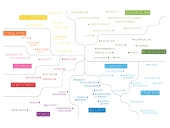


Tj Jefferson wrote:Matthew,
I assume this diagram is an outgrowth of the Five Factor Model. The fascinating thing to me is that a functioning social network of more than a handful of people will benefit from people all over the spectrum, but we tend (in my social circle anyway) to see certain traits as better. It is totally subconscious, as can be seen in the statement you made. As you can see those traits are on opposite sides of the openness axis. But there are times where certainty is a desirable trait. I would recommend avoiding surgeons high in openness. Mechanics probably are not strong in openness.And finally yes, it is extremely important to approach an issue with curiosity rather than certainty
Society needs both, and it benefits from people who are not as polar to help them interpret data and maybe reach a consensus. Just one of those paradoxes of social psychology that makes it so interesting!

Nicole Alderman wrote:It's my favorite time of the week--time to announce the winners!!!
Congratulations!
Kenneth Elwell
Michael McKay
Pavel Mikoloski
Amy Arnett
I'll be sending each of you a PM--please reply by Sunday to claim your copy of the book!
Many thanks to Matthew for joining us this week in so many thought-provoking discussions!

Xisca Nicolas wrote:I do not really see how to use this big diagram!
We cannot either be some sort of false chameleon trying to use others' values in order to be créate some bond... This looks like strategy I have seen dating men use, or comercials trying to sell!
I find true though that meaning in the sense of making meaning of life, has to do with values, but who has ever met somebody who shares all the same values?
I think the diagram is a bit like a thesaurus, where some people think the different things when asked about the topic. For example: ACHIEVEMENT, one person might think INTELLIGENCE, while another might think CAPABLE, which might mean one person values a college degree, while the other values real world experience/on the job training.

Kenneth Elwell wrote:Just last night I heard a news summary on the radio, where the announcer made an error when reporting about a proposed gun regulation (used an incorrect model number for an affected rifle). I get that he may have misread a script, that may have had a typo... but to me it was a glaring, cringeworthy mistake.
The sort of thing that instantly identified them/the news outlet as a outgroup to any gun enthusiast. Leading to a shutdown of communication, “here we go again...how about you educate yourself first, and then maybe we can talk...”
So, how about it? What are people’s thoughts about taking time/making the effort to educate themselves about an issue in order to have a conversation across a divide?
Paul Wheaton wants folks coming to stay at the lab to have listened to ALL the podcasts. In hopes that the conversation can build on them rather than spend the time getting everyone up to speed.

Jasmine Dale wrote:Hi Matthew,in the process of leaving an eco village after 10 years of unharmonious group dynamics. As a permaculture designer, I have been doing plenty of evaluation of what we could have done differently to have lessened the fighting. I've been aware we never had an explicit group vision and in a design that feels essential. A vision board or graphic representation to explore the diversity of our visions for the project is one technique I would've used. What's your thoughts on a) initial visioning and b) reclaiming a project that's gone sour through vision building techniques? Thank you!
Tyler Ludens wrote:Most of my close neighbors, both in town and in the country, are to the right side of the spectrum, whereas I am a wild-eyed lefty. We get along fine, even though we are well aware of each others' political leanings. We get along by being kind and helpful to each other. We share interests (gardening, nature, birding), tools, labor, food. We don't discuss politics or religion much, because there wouldn't be a point. We're all mature and set in our ways, and not likely to be persuaded by argument.
So I think the divide can be bridged by finding common ground. I believe it's possible to find common ground with anyone who is interested in doing so.
Jay Angler wrote:Welcome Mathew! I always figured that some of the most important things in life, like communication and child rearing, seem to be "learn on the job", "absorb by osmosis" sorts of things, when in fact, many people need instruction books on how to do it well as a start, and good role models to practice on! I will head over and read your book review.